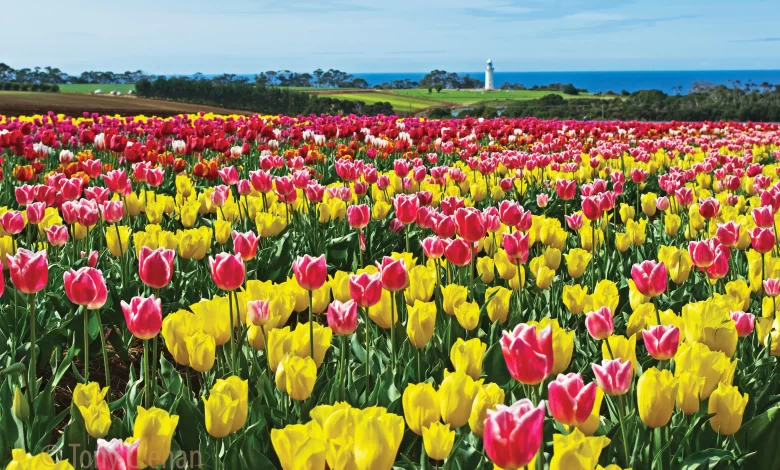The Blooming Success: Exploring the Evolution of Tasmanian Agriculture

In the fertile lands of Tasmania, a captivating transformation has been unfolding. Tasmania’s agriculture sector, once known for its wool production, has undergone a remarkable evolution, diversifying into a thriving industry with a plethora of crops and commodities. This article delves deep into the blooming success story of Tasmanian agriculture, tracing its journey from humble beginnings to a booming sector that plays a critical role in both the local and global markets.
With an ideal mix of rich soils, pure water sources, and a temperate climate, Tasmania has become a haven for growers and farmers seeking to produce high-quality, sustainable products. From delicious fruits like apples and berries to premium meats, cheeses, and wines, the island state has firmly established itself as a go-to destination for top-notch produce.
We will explore how Tasmania’s agriculture industry has incorporated innovation and sustainable practices to meet the growing demand for ethically sourced and environmentally friendly products. From organic farming methods to cutting-edge technology, the sector continues to push boundaries, setting new standards for quality and sustainability.
Join us as we unearth the story behind Tasmania’s agricultural success and discover the secrets behind its thriving industry, where tradition meets innovation to create a blooming legacy for future generations.
Historical overview of Tasmanian agriculture
Tasmania’s agricultural history can be traced back to the early 19th century when the island was colonized by the British. The first settlers recognized the immense potential of Tasmania’s fertile land and temperate climate, and they quickly set about establishing farms and orchards. Initially, the focus was on producing basic foodstuffs such as wheat, barley, and vegetables to support the growing population.
Over time, the agricultural landscape evolved, with the introduction of livestock such as sheep and cattle. The wool industry became a significant driver of the Tasmanian economy, with the island’s high-quality wool being exported to markets around the world. As the 20th century dawned, the agricultural sector continued to diversify, with the emergence of new crops and the expansion of existing ones. Apples, hops, and poppies became important agricultural commodities, further cementing Tasmania’s reputation as a hub for premium produce.
Today, Tasmanian agriculture has come a long way from its humble beginnings. The sector has undergone a remarkable transformation, with farmers and growers embracing innovative techniques and technologies to enhance productivity and sustainability. From precision farming to organic cultivation methods, the industry has adapted to meet the changing demands of both domestic and international markets, solidifying Tasmania’s position as a leader in the global agricultural landscape.
Factors contributing to the success of Tasmanian agriculture
Tasmania’s success in the agricultural realm can be attributed to a combination of natural and human-made factors. The island’s unique geography and climate have played a pivotal role in creating an environment that is conducive to growing a diverse range of crops and rearing livestock.
The temperate, maritime climate of Tasmania, characterized by mild summers and cool winters, provides ideal conditions for many agricultural pursuits. The island’s abundant rainfall, coupled with its fertile soils, ensures that crops receive the necessary moisture and nutrients to thrive. Additionally, the clean, pristine water sources found throughout Tasmania contribute to the high quality of the region’s agricultural products.
Another key factor contributing to the success of Tasmanian agriculture is the state’s commitment to sustainable and innovative practices. Farmers and growers in Tasmania have embraced a forward-thinking approach, incorporating cutting-edge technologies and environmentally friendly methods to enhance productivity and minimize their environmental impact. This focus on sustainability has not only resonated with consumers but has also positioned Tasmania as a global leader in the production of ethically sourced and high-quality agricultural goods.
Furthermore, the Tasmanian government has played a pivotal role in supporting the agricultural sector through various initiatives and policies. From investment in research and development to the implementation of robust regulatory frameworks, the government’s efforts have helped to create an enabling environment for the industry to flourish. This collaborative approach between the government, industry stakeholders, and the local community has been instrumental in driving the success of Tasmanian agriculture.





